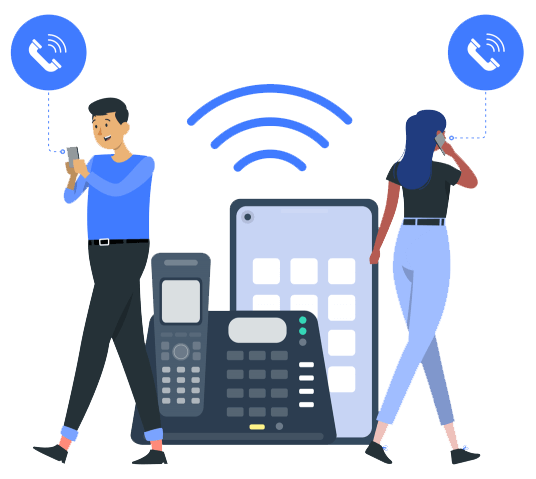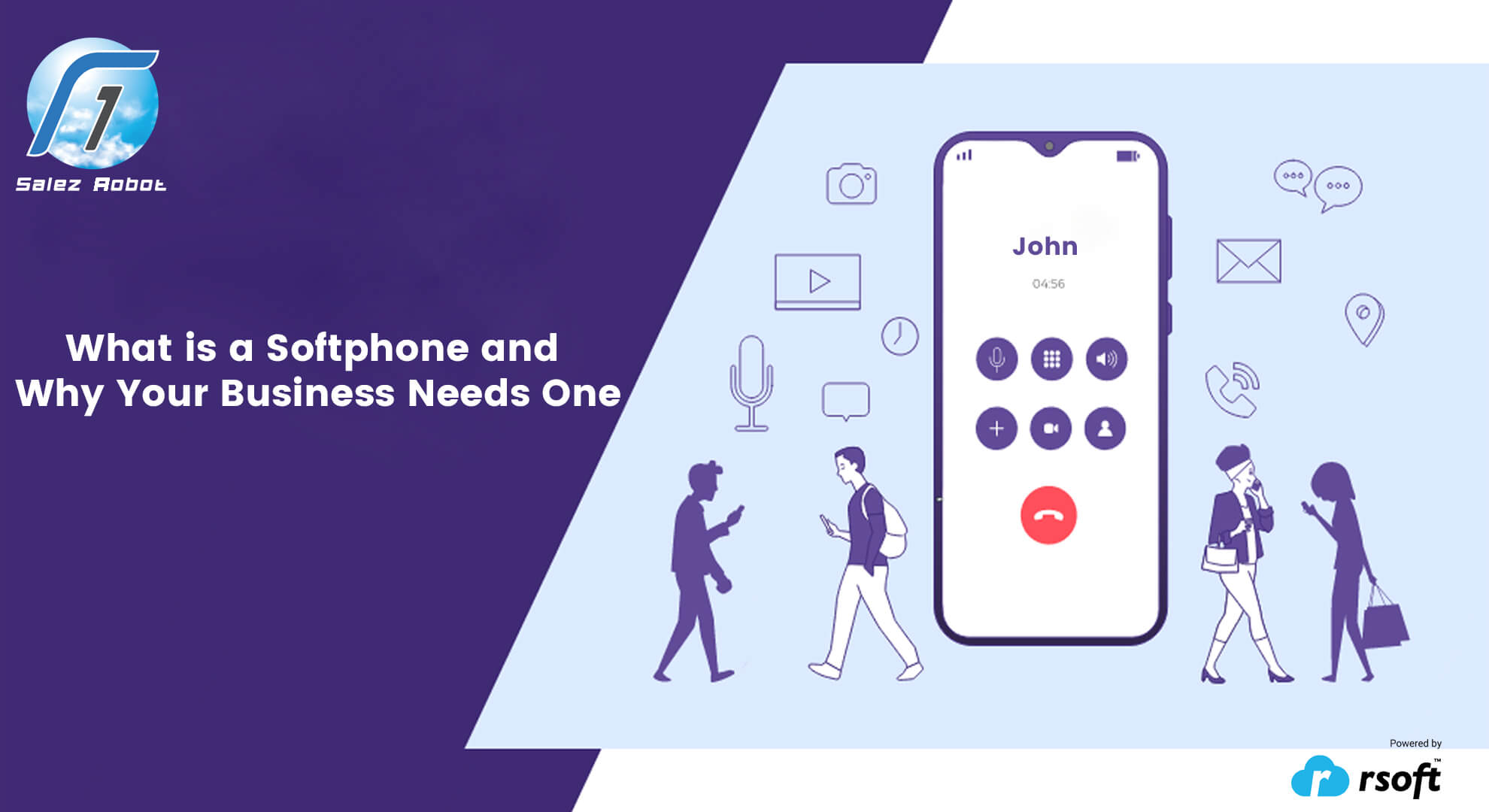An internet-based phone system, or "softphone," is a program that uses Voice over Internet Protocol to function. Softphone owe their existence to Voice over Internet Protocol (VoIP), the foundational translation tool that enables phone calls to be connected over the internet. Connected to the larger field of telephony, unified communication systems are an integral part of the industry.
It also has several additional features, such as quickly integrating with other programs (such as a help desk, Customer Relationship Management Software , an online store, etc.).
Softphones owe their existence to Voice over Internet Protocol (VoIP), a translation tool that enables traditional phone calls to be routed over the internet.
A business Softphone is a software application installed on computers, laptops, Android, and iOS mobile devices or accessed online. This means they can be taken anywhere there is an internet connection and used without limitations. They typically have many valuable features that regular phone services lack.
In what ways can we expect to see them implemented?
Customer service representatives can use software tightly integrated with customer relationship management systems to assist customers better.
To what extent does a Softphone vary from an "on-premises" phone?
For many years, "on-prem" (also known as "on-premises") phones have been the standard for corporate phone systems.
Do you have a picture in your mind of a traditional desk phone in an office setting? If so, then you're roughly where it should be.
But that's starting to alter. In today's world, where portability and adaptability are prized above all else, and many workers don't even have permanent desks, the concept of a "solid" phone is becoming increasingly obsolete.
Therefore, in what specific ways do they vary from one another?
Private Branch Exchanges are the standard for on-premises phone service (PBX). It's a miniature telephone exchange customized for your company's needs, complete with all the intricacies of setting it up. Reliance on centralized server systems, copper cabling, and network carrier connections. That's before we even talk about desktop telephones.
The initial investment in hardware and infrastructure is substantial, and ongoing attention and manual intervention are also required for keeping it running smoothly and add new features. In practice, however, they can present several difficulties for the management of telephony operations, especially for a small business with limited means.
However, business softphones can accomplish this and more with the aid of a VoIP service and the power of the internet. With the help of VoIP codecs, the VoIP service provider can send voice calls across the internet and to their destination. close to the standard operation of email.
The PBX, an intelligent system, is needed to coordinate these functions (Private Branch Exchange). The PBX will handle incoming and outgoing calls, route them, record and playback conversations, facilitate call transfers, and more.
The software incorporates all the features of a conventional on-premises phone system, and its controls can communicate with other software and hardware through direct interfaces.
Assuringly, a traditional handset and headset are still available options.
Portability
There is no doubt that modern softphones offer unprecedented adaptability and real-time connectivity. Businesses can keep their current phone numbers even after switching to a VoIP service, thanks to "porting" their numbers from their current carrier to the new VoIP service provider.

Easy to Use

A Softphone allows users to make calls from a computer, tablet, or smartphone using a web browser or dedicated app. There is no requirement for permanent landlines. In addition, there is no need for ambiguous buttons to indicate the various functions of holding, transferring, and sending calls to voicemail.
Ability to grow and improve
Softphones download and install updates automatically over the internet. In addition, hiring new agents or administrators is no need for a phone line or any other telephony hardware
Monitoring You can maintain a close watch on customer service standards in a single location, all while tracking interactions and managing business communications in your call center.
Cost-Effective Setup
Compared to on-premises alternatives, cloud-based systems have low upfront costs and transparent, recurring monthly fees. In addition, the pricing is predictable as it is based on a reoccurring revenue stream (monthly or yearly fees for fixed agent licenses.

Conclusion
No matter what path you take with your company, know that there exists cutting-edge tools ready and waiting to help you streamline your operations. You'll be able to devote more time and energy to satisfying customers because RSoft technologies will allow you to streamline your operations and work more efficiently.
I mean, isn't that the main thing?


